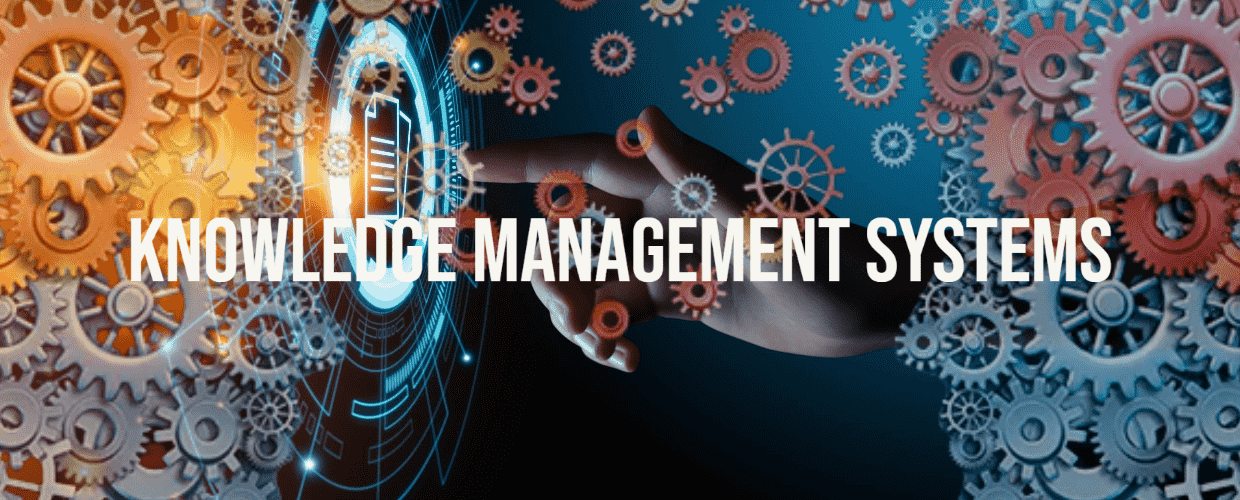Knowledge management systems have many powerful features that enable the transition and collaboration of internal and external expertise. This article discusses Knowledge Management Systems (KMS) with applications, history, categories, and market value.
What is Knowledge Management System?
Knowledge management deals with creating, sharing, and maintaining knowledge and information related to businesses. Knowledge management systems include Enterprise-Wide Knowledge Management Systems, Online Community Forums, Learning Management Systems (LMS), Knowledge Bases, Research and Insights Libraries, and so on.
Everett Rogers (at Stanford) and Thomas Allen( at MIT) pioneered studies on information and technology transfer in the late 1970s to a better understanding of organizational knowledge and the usage of computer technology [1]. In 1991, Tom Stewart introduced knowledge management in the popular press, and he published “Brainpower” in Fortune magazine [2].
“Without an efficient knowledge management model in place, information that is critical to the current, ongoing, and future success of the supply chain may be jeopardized. In short, knowledge management is retrieving the right information, for the right people, at the right time.” — John Yuva
What are the Catigories of Knowledge Management Systems?
Knowledge can be divided into seven basic categories:
- Explicit knowledge to be easily documented, shared, and deployed.
- Implicit knowledge is applied knowledge.
- Tacit knowledge to gain from personal traits and experience.
- Declarative knowledge is static knowledge that is topic specific.
- Procedural knowledge focuses on the ‘how.’
- Posteriori knowledge, subjective gained from individual experience.
- A priori knowledge is gained independently from evidence.
Why are Knowledge Management Systems Important?
Knowledge management helps businesses access the information and resources they need to do their tasks effectively and efficiently. A smarter workforce can make more informed decisions and benefit the entire organization by ensuring all employees have access to the information and skills they need.
Knowledge management is important because it enhances the efficiency of an organization’s decision-making capabilities. Knowledge is the heartbeat of every judgment created within our community. Product development, service improvement, customer engagement, and entire company operations are made with the knowledge of their teams. The importance of knowledge management is increasing every year, and the marketplace is becoming more competitive.
“Within the context of supply market intelligence, procurement must first master the discipline of documenting what they learn (knowledge management), so that they can successfully address the challenge of making those documents accessible and keeping them current for future use (content management). There is no need to run distinct efforts to manage knowledge and content. It is the common ground they share, the discipline of recording and maintaining information, which is the most important.” — Kelly Barner
How are growing global Knowledge Management Systems markets?
According to ReportLinker, the global Knowledge management systems market value was USD 381.5 billion in 2020. It is expected to reach USD 1.1 Trillion by 2026, registering a compound annual growth rate of 19.8% from 2021 to 2026 [3].
“Most Procurement executives are trying to accomplish more than ever before with fewer resources in an increasingly complex global marketplace. For Procurement to progress, solid and effective Knowledge Management Programs are needed to capture and share intellectual capital.” — John R. Evans
“Knowledge management will never work until corporations realize it’s not about how you capture knowledge but how you create and leverage it.” — Etienne Wenger





